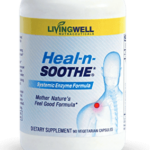Those who suffer from whiplash know that whiplash is no walk in the park. Whiplash is an injury to the ligaments, muscles and tendons (soft tissue) in your neck and is usually a result of injury (i.e car accident, falls, assault, sports, etc). Whiplash usually occurs when the neck thrust forward or backward in an awkward forceful motion that exceeds the necks normal range of motion.
More often than not you may find people complaining of whiplash after a motor vehicle accident. During motor vehicle accidents the neck may be forced to jerk in a direction that it is not use to moving at a speed that it is unaccustomed to. This causes an immediate strain in the neck that manifest as whiplash. Other reasons for whiplash include repetitive stress injuries and chronic neck strain. Chronic neck strain can be a result of holding the neck in an awkward position over a period of time like while sleeping or using the telephone. Shaken baby syndrome can also cause whiplash as well as child abuse (which can result in brain and spinal cord damage).
There is no one way to tell if you are suffering from whiplash. Signs and symptoms of whiplash have been known to manifest instantly or over time after the initial injury. Delayed signs of whiplash tend to be better for sufferers than immediate signs as immediate signs can be an indication of something more serious. Those suffering from whiplash have reported neck and/or back pain, pain in the shoulders, tenderness along the back of the neck, difficulty or feelings of strain when moving the neck, muscle spasms that can occur in the side and/or back of the neck, shooting pain from the neck into the arms and shoulders. In most cases whiplash is confined to the spinal cord focused primarily in the neck and mid-spine.
If you feel that you are suffering from whiplash you may want to consult a physician. Be sure to assess the nature and impact of the injury to your neck. If shortly after an accident or injury you notice weakness, tingling, numbing, pain or loss of function in the arms or legs or if there is dizziness, headache and noticeable neck pain consider contacting 911. There a few treatments that can be done at home in cases where whiplash is not too severe:
- Try icing the affected area. Wrap ice in a towel or use a cold compress and apply it to the neck for 20 minutes each hour for the first 24 hours after injury.
- Try an anti-inflammatory ibuprofen such as Advil or Motrin. These over the counter medications can help relieve the swelling in the neck which can help to reduce pain.
- Get a massage. A massage to the affected area can relax the tension in the neck while increasing blood flow.
- Be sure to get your rest. Allow the neck time for recovery by not adding any stress or subjecting the neck to too much movement.
Though whiplash is common and in most cases not too severe. Those suffering from whiplash are all too familiar with the discomforts. If home care does not seem to work be sure to visit a doctor. If you have would like more information on whiplash visit losethebackpain.com today!


